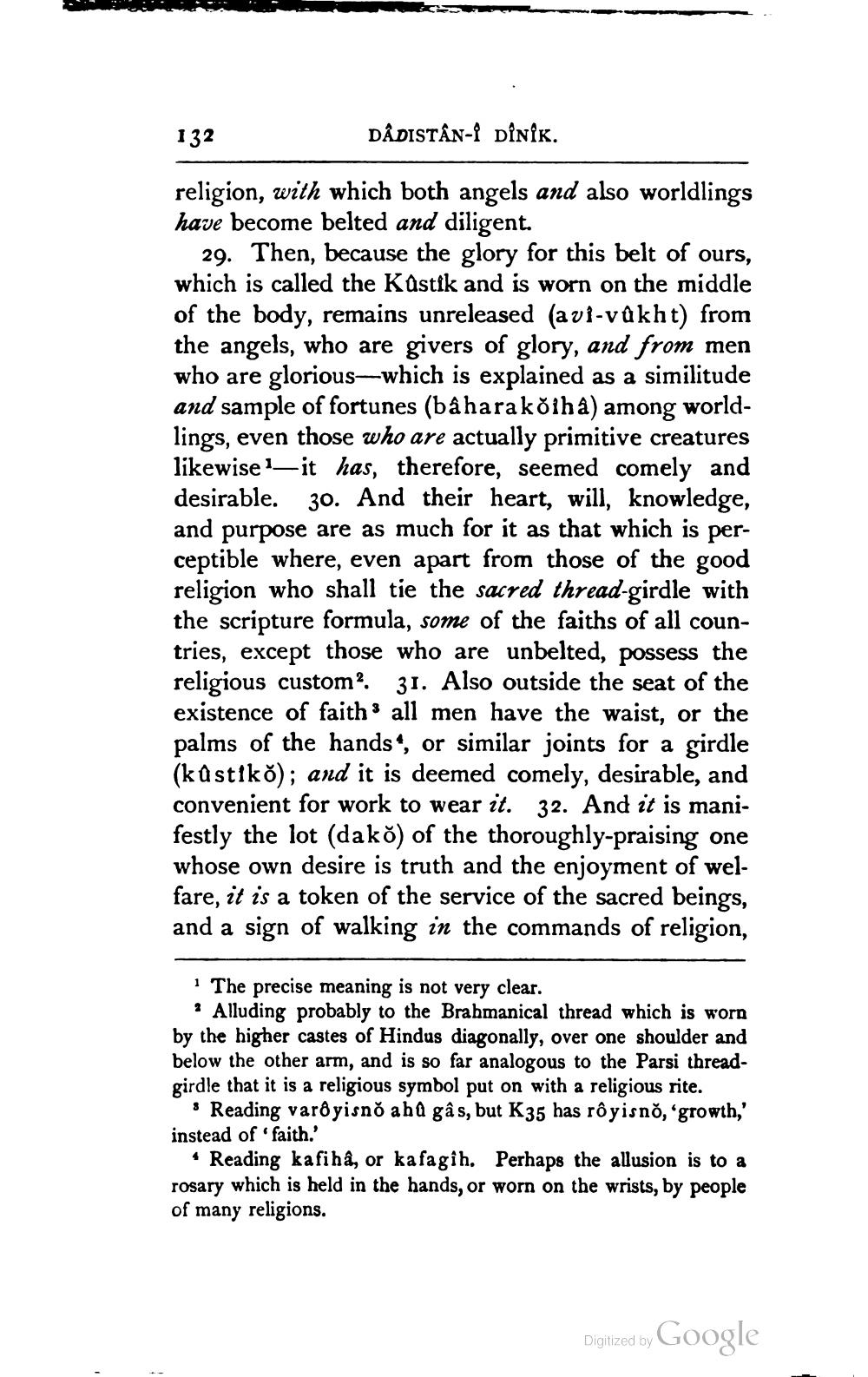________________
132
DÂDISTÂN-I DÎNÍK.
religion, with which both angels and also worldlings have become belted and diligent.
29. Then, because the glory for this belt of ours, which is called the Kastik and is worn on the middle of the body, remains unreleased (avi-v ukht) from the angels, who are givers of glory, and from men who are glorious—which is explained as a similitude and sample of fortunes (bâharakõiha) among worldlings, even those who are actually primitive creatures likewise it has, therefore, seemed comely and desirable. 30. And their heart, will, knowledge, and purpose are as much for it as that which is perceptible where, even apart from those of the good religion who shall tie the sacred thread-girdle with the scripture formula, some of the faiths of all countries, except those who are unbelted, possess the religious custom?. 31. Also outside the seat of the existence of faith all men have the waist, or the palms of the hands“, or similar joints for a girdle (kastiko); and it is deemed comely, desirable, and convenient for work to wear it. 32. And it is manifestly the lot (dako) of the thoroughly-praising one whose own desire is truth and the enjoyment of welfare, it is a token of the service of the sacred beings, and a sign of walking in the commands of religion,
The precise meaning is not very clear. ? Alluding probably to the Brahmanical thread which is worn by the higher castes of Hindus diagonally, over one shoulder and below the other arm, and is so far analogous to the Parsi threadgirdle that it is a religious symbol put on with a religious rite.
: Reading varðyisno ahû gâs, but K35 has rôyisno, growth,' instead of faith.'
• Reading kafi hâ, or kafagih. Perhaps the allusion is to a rosary which is held in the hands, or worn on the wrists, by people of many religions.
Digitized by Google




